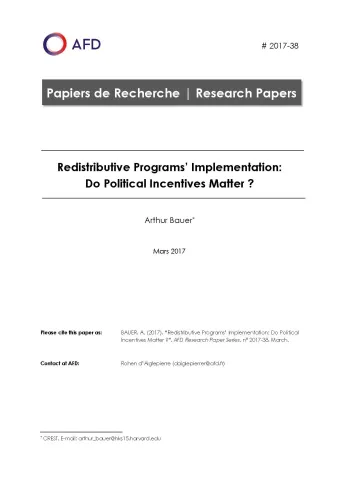Share the page
Redistributive Programs’ Implementation: Do Political Incentives Matter ?
Published on

Despite innovative safeguards to reduce political interference in the nowadays famous Mexican conditional cash transfer, local politicians received important electoral rewards from its implementation. I ask whether program’s implementation responded to political incentives. My empirical test leverages a natural-experiment: the interaction between the rotating structure of local elections and the timing of ProgresaOportunidades’ implementation. I show, with administrative data from the Secretariat of Social Development (SEDESOL), how exogenous political incentives determined the enrollment rate of beneficiaries. After the implementation of blindaje electoral, I use a close-election regression discontinuity design to show how local incumbent’s alignment with the PAN causally impacted enrollment rates’ responsiveness to political incentives, despite reduced political interference in average. Then, separating the different phases of program implementation I am able to identify which actors were more responsive to local political incentives: namely local governments’ employees more than program’s officials. Finally, I show that enrolling additional beneficiaries because of political incentives didn’t foster program’s efficiency in reducing inequality and poverty rate.
Useful Information
-
Authors
-
Arthuer Bauer
-
Edition
-
38
-
Number of pages
-
33
-
ISSN
-
2492-2846
-
Collection
-
Research Papers
